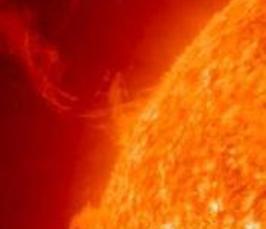We present an overview of K2 short cadence observations for 32 M dwarfswhich have spectral types between M0-L1. All of the stars in our sampleshowed flares with the most energetic reaching 3x10^34 ergs. As previousstudies have found, we find rapidly rotating stars tend to show moreflares, with evidence for a decline in activity in stars with rotationperiods longer than approximately 10 days. We determined the rotationalphase of each flare and performed a simple statistical test on oursample to determine whether the phase distribution of the flares israndom or if there is a preference for phase. We find none show apreference for the rotational phase of the flares. If the analogybetween the physics of solar and stellar flares holds and these eventsoccur from active regions which typically host spots, then you wouldexpect to see more flares during the rotation minimum where the starspotis most visible. However, this is not the case with our sample and infact all of our stars show flares at all rotational phases, suggestingthese flares are not all originating from one dominant starspot on thesurface of the stars. We outline three scenarios which could explain thelack of a correlation between the number of flares and the stellarrotation phase.
[mehr]
